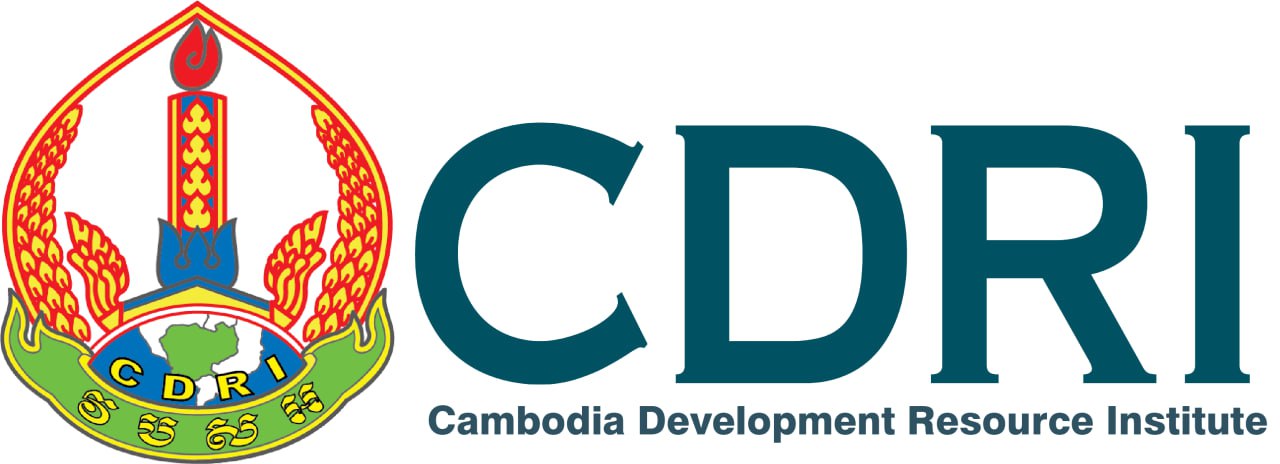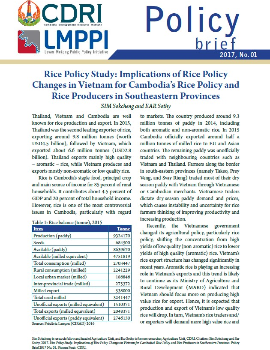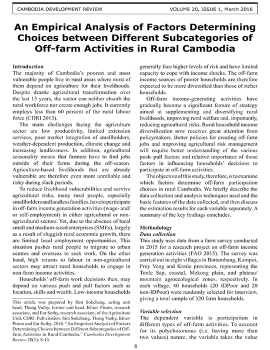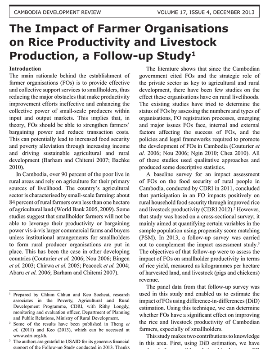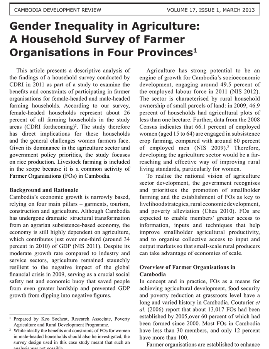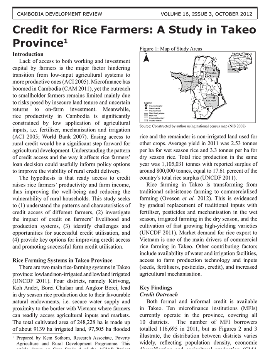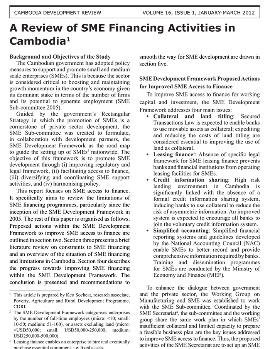Centre for Policy Research in Agriculture and Rural Development
The Centre for Policy Research in Agriculture and Rural Development (CPARD) is committed to carrying out cutting-edge, evidence-based, policy-relevant research focusing on Cambodia’s agriculture sector. We bring a wealth of expertise and experience to all our research activities which are locally and internationally acknowledged for their rigor. Our experienced researchers with expertise in agricultural economics, applied economics, and economic development develop and apply innovative quantitative and qualitative tools to study numerous critical issues in the field of agriculture, including nutrition and food safety, agricultural value chains, agricultural sustainability, agricultural development, and rural livelihood improvement. Our dissemination efforts target policy makers, development partners, and research community through publications, seminars, workshops, conferences, and dialogues. Having partnerships with government agencies, local and international think-tanks, and other research institutes, we hope to make a meaningful contribution to a sustainable future of Cambodia’s agriculture and improve the well-being of people residing in rural communities.

Cambodia's Agri-Food Trade: Structure, Challenges, New Emerging Potentials, and Impacts of Covid-19
International Food Policy Research InstituteFrom the early 1990s, Cambodia’s agricultural food trade was seen as exports of raw materials and unprocessed primary commodities to neighboring countries such as Thailand and Vietnam. The production and processing capacity were r...
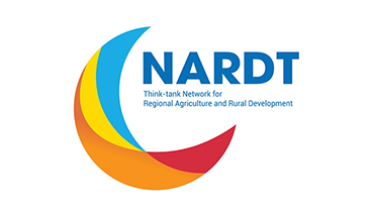
Network for Agriculture and Rural Development Thinktanks (NARDT) for Countries in Mekong subregion
International Fund for Agriculture DevelopmentThe Network of Agriculture and Rural Development Think-tanks (NARDT) project is designed to form a consortium with flexible cooperation mechanism where think tanks of different stakeholders of Cambodia, Myanmar, Lao and Vietnam ca...
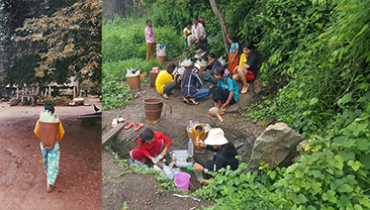
Cambodia Gender and Inclusive Development Analysis (GIDA)
United States Agency for International DevelopmentThis study aims to fill this gap in research by conducting a Gender and Inclusive Development Analysis (GIDA) combining qualitative and quantitative approaches. The GIDA is intended to inform USAID’s work plans regarding the Cambo...
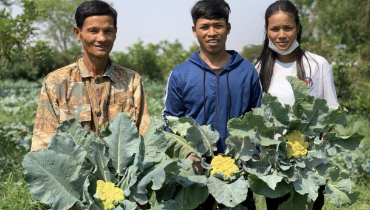
Mid-Term Performance Evaluation of HARVEST II Project
United States Agency for International Development-CambodiaThe project was funded by the United States Agency for International Development in partnership with Mitchell Group, Inc. (TMG). The project was to conduct mid-term evaluation on HARVEST II project.
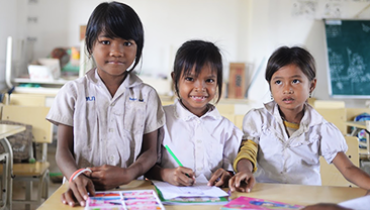
Migration, Remittances and Child Schooling in Rural Cambodia
Partnership for Economic ProsperityGrowing rural-to-urban and international migration flows have sparked concerns about the investments in education of the children left behind in Cambodia. We draw on a panel household-level survey conducted in rural villages in...
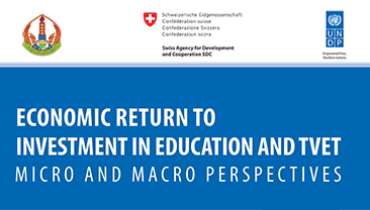
Economic Return to Investment in Education and Technical Vocational Education and Training (TVET) on Youth Employability...
United Nations Development Programme, CambodiaAs part of the UN Joint Programme, UNDP seeks to examine the relationship between the economic/ monetary returns at individual, household and national level of investments in education and technical vocational education and traini...
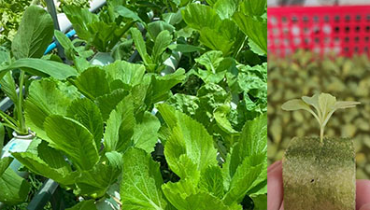
On-farm Food Safety in Horticulture in Cambodia: The Case of Vegetable Farming
Swedish International Development Cooperation AgencyDespite being an agrarian economy, Cambodia imported vegetables approximately 70 percent of the total domestic consumption because the commercialized vegetable farming in Cambodia is inadequate, let alone the commercial investm...
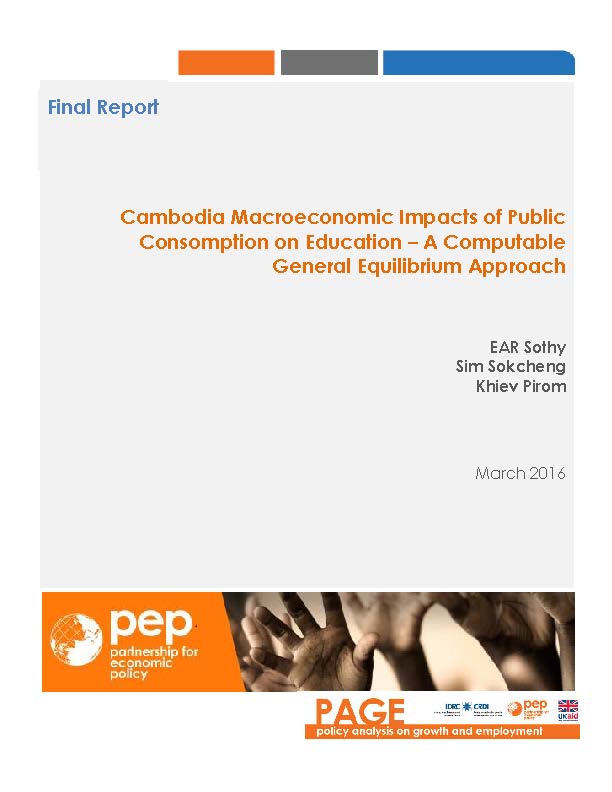
Cambodia Macroeconomic Impacts of Public Consumption on Education — A Computable General Equilibrium Approach
Lack of human capital is seen as one of the most significant constraints for Cambodia to be more competitive and to reach upper-middle-income country status. A recent discussion among researchers, policymakers, the private sector and development partners reached a broad consensus that a skills gap is emerging in Cambodia. In spite of concerted efforts, policymakers and bureaucrats still face chall...
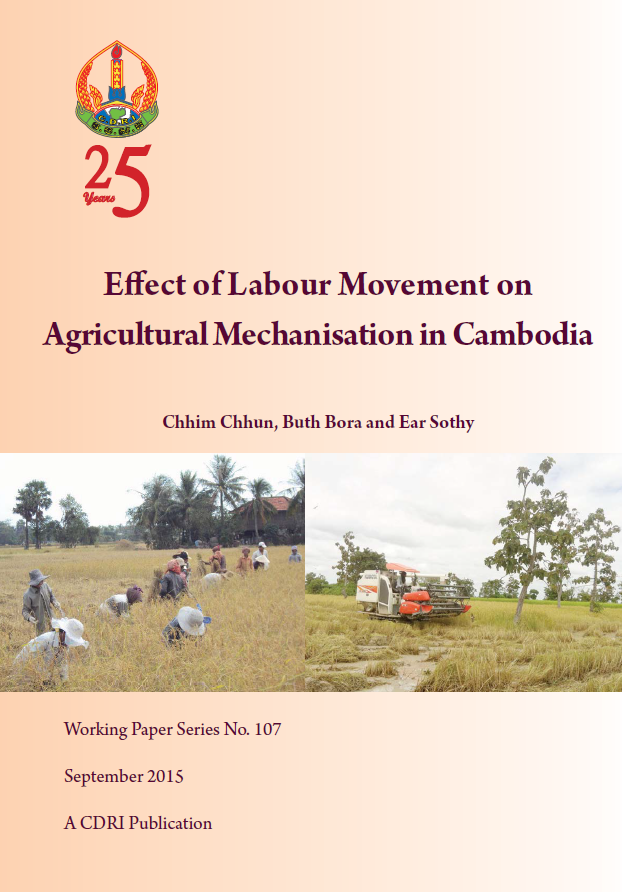
Effect of Labour Movement on Agricultural Mechanisation in Cambodia
This paper looks at the effect of labour movement on farm mechanisation in rural Cambodia. The study focuses on labour movement from on-farm towards off-farm jobs, and uses investment in agricultural machinery as a proxy for farm mechanisation. Statistics show that in recent years there has been a huge outmigration from rural areas. This has had significant impacts on farming practices across the...
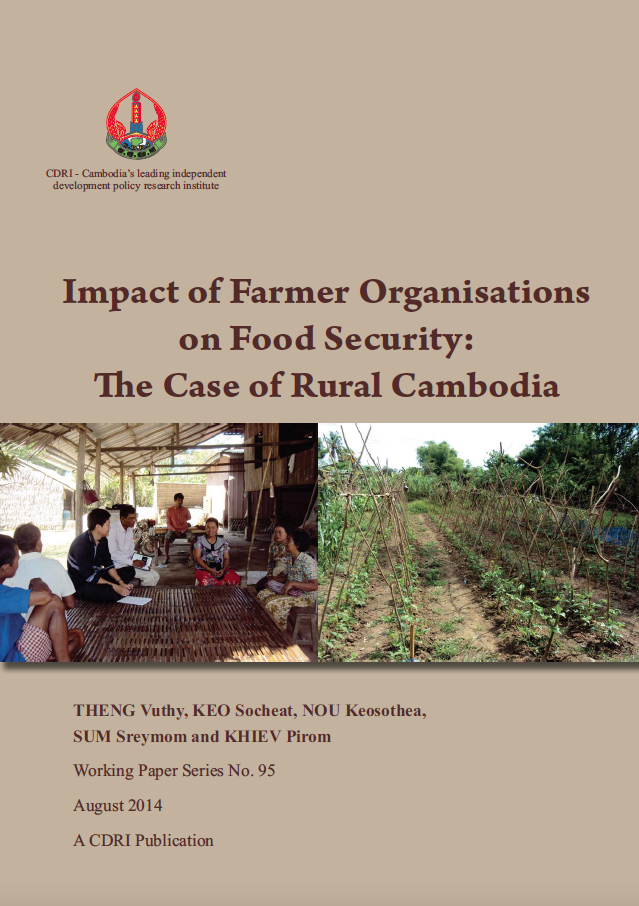
Impact of Farmer Organisations on Food Security: The Case of Rural Cambodia
This study assesses the impact of participation in farmer organisations (FOs) on the food security of rural households in Cambodia. The study was started in November 2010 and completed in June 2012. The study set out to: (1) examine the roles, operations and challenges of FOs in improving household food security; (2) analyse the household characteristics that determine participation in FOs; (3) a...
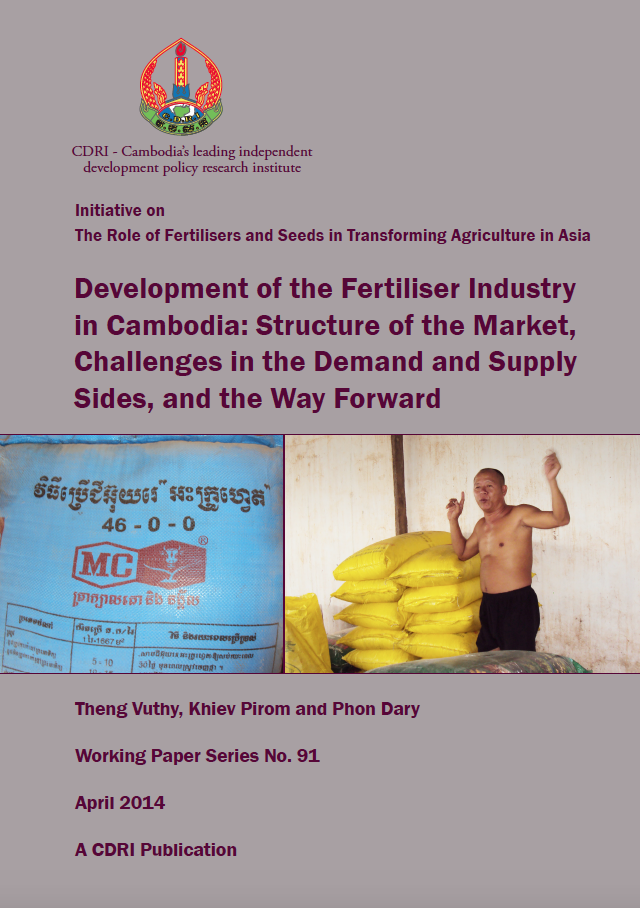
Development of the Fertiliser Industry in Cambodia: Structure of the Market, Challenges in the Demand and Supply Sides, and the Way Forward
Agriculture plays a crucial part in Cambodia’s economy, accounting for about 27.3 percent of GDP in 2010. The sector engages at least 59 percent of the economically active population, and over 90 percent of the population lives in rural areas where agricultural activities remain the primary source of livelihood. Agricultural growth, on average, was about 4.6 percent per year over the period 1994–2...
